

DIPLOMA IN AGRICULTURE Admission 2024, Syllabus, Eligibility, Duration
DIPLOMA IN AGRICULTURE Admission 2024, Course Fees Structure, Career Prospects and Jobs Scope | Salary & PayScale for DIPLOMA IN AGRICULTURE Holders | Course Duration | DIPLOMA IN AGRICULTURE Specializations Admission Process | Entrance Exams for (DIPLOMA IN AGRICULTURE)
DIPLOMA IN AGRICULTURE Admission | DIPLOMA IN AGRICULTURE Course Fees Structure | DIPLOMA IN AGRICULTURE Career Prospects and Jobs Scope | Salary & PayScale for DIPLOMA IN AGRICULTURE Degree Holders | DIPLOMA IN AGRICULTURE Course Duration | DIPLOMA IN AGRICULTURE Specializations | DIPLOMA IN AGRICULTURE Admission Process | Entrance Exams for (DIPLOMA IN AGRICULTURE)
DIPLOMA IN AGRICULTURE
DIPLOMA IN AGRICULTURE
Agriculture
1 Year
12th
Year
Diploma
Diploma in Agriculture Overview
The Diploma in Agriculture is a two-year course that provides knowledge in various forms of agriculture, livestock and crop management, agricultural extension, agricultural chemistry, and more. The Diploma in Agriculture is aimed at candidates with an interest in agriculture and related fields of study. The Diploma in Agriculture is divided into four semesters. To be eligible for the course, candidates must have passed Class 10 or equivalent from a recognized board with a minimum aggregate score of 50%. Soil and fertility management, principles of agronomy, plant pathology, principles of genetics, and other topics are covered in the Diploma in Agriculture curriculum and subjects. Admission to the Agriculture Diploma is primarily based on the scores obtained in the 10th or equivalent mid-term examination. Diploma in Agriculture is an undergraduate program that provides students with fundamental knowledge and skills in the field of agriculture.
Diploma in Agriculture Course Details
| Course Name | Diploma in Agriculture |
| Course Type | Diploma |
| Course Duration | One Year |
| Application Process | online and offline mode |
| Fee Structure | Updated Soon |
| Eligibility Criteria | 10+2 from recognized board |
Diploma in Agriculture Eligibility
The candidate must have passed Class 10. The candidate must have a minimum of 50% marks in aggregate. 5% relaxation in marks will be given to candidates belonging to SC/ST/OBC (non-creamy layer), differently abled, and other categories on the submission of supported documents.
Diploma in Agriculture Admission Process
Diploma in Agriculture Admission course will be done based on the candidate's performance in the qualifying examination i.e. Class 10 exams. In merit-based selection, marks obtained by a candidate in the qualifying examinations are considered for offering admission into the course. The various steps involved in the admission process are given below.
- The admission process to the Diploma in Agriculture course is either entrance based or merit-based.
- Since most colleges enroll students on the basis of merit, candidates are advised to attain high percentages in the class 10 board exams.
- Participation and certification in various extra-curricular activities such as clubs, sports, and NGO volunteering can be a deciding factor to the list of merits.
- In the case of entrance-based selection, it is very important to perform well and score above the qualifying marks in the entrance test in order to get admission in a good college.
- One must be well aware of the latest exam pattern. One must also know the weightage assigned to each section in the exam and prepare accordingly.
- One must start preparing for the entrance exam a year before as this gives ample time for learning and revision. Do keep your target institute in mind.
Diploma in Agriculture Entrance Exam
Entrance Exams for Diploma in Agriculture:
- ICAR AIEEA (All India Entrance Examination for Admission)
- PAU CET (Punjab Agricultural University Common Entrance Test)
- MPUAT JET (Maharana Pratap University of Agriculture and Technology Joint Entrance Test)
How to Apply for Diploma in Agriculture
The application process typically involves the following steps:
Visit the college or university website.
Fill out the application form with the necessary details.
Pay the application fee.
Submit the application form.
Download the admit card for the entrance exam.
Take the entrance exam.
Diploma in Agriculture Application Fee
The application fee for the diploma in agriculture varies from college to college. The fee structure will be updated soon.
Diploma in Agriculture Syllabus
The syllabus of the diploma in agriculture typically covers the following topics:
Semester 1
| Semester 2
|
Diploma in Agriculture Salary and Jobs
After completing the diploma in agriculture, graduates can find employment in various fields such as agriculture research, crop production, food processing, agricultural marketing, and farming. The salary of a diploma holder in agriculture varies depending on the job profile and the company. The average salary of a diploma holder in agriculture is around INR 2-3 lakhs per annum.
| Job Type | Description |
| Agronomist | An Agronomist is responsible for increasing the productivity of the soil. He/She studies plants and soil for the better productivity of the soil. They also suggest better harvesting techniques, solve harvest problems, help in better cultivation. |
| Agricultural Officer | The responsibilities of an Agricultural Officer involves taking care of the rules and regulations in the agricultural activities taking place in state and local areas. They need to make sure that the activities comply with the rules and regulations. |
| Agricultural Engineer | An Agricultural Engineer is responsible for solving problems related to agriculture like types of equipment and their efficiency, any environmental issues, storage-related hindrances and others. |
| Agricultural Inspector | The role of an Agricultural Inspector is to keep a check on the quality of production and ensure that all activities are in accordance with rules and regulations. They are additionally responsible for providing the necessary equipment for the production. |
Diploma in Agriculture Career Opportunities
|
Diploma In Agriculture is diploma course in Agriculture of 2 to 3 years duration. Candidate should be familiar with pastures, crops, and soil types and agricultural who wants to do this course. Candidates can find wide spread career scopes in agriculture after completion of the course. Agriculture is the cultivation of plants with animals and other life forms for food to sustain life.
Various Job Areas after Diploma In Agriculture
- Food production firms
- Government agricultural firms
- Banks
- Plantations
- Government fertilizer manufacturing firms
- Private fertilizer manufacturing firms
- Agriculture machinery manufacturing firms
Various Types of Jobs after Diploma In Agriculture
- Agricultural Engineer
- Agricultural Inspector
- Agricultural Ecologist
- Conservation Planner
- Fishery Manager
- The Plant Biologist
- Water Conservationist
- Agricultural Manager
- Botanist
- Horticulturist
- Plant Ecologist
Annual Average Salary after Diploma In Agriculture
- Agriculture officer - INR 4 to 5 Lacs
- Tea gardener - INR 2,00,000
- Research scholar - INR 2 to 3 Lacs
- Research Associate - INR 3 o 4 Lacs
- Business Manager - INR 7 to 8 Lacs
Diploma in Agriculture Top Colleges
|
Documents Required For DIPLOMA IN AGRICULTURE Admission
- Mark sheet and pass certificate of your Class X or XII examination.
- Proof of date of birth.
- School leaving certificate
- Transfer certificate
- Domicile certificate/ residential proof or certificate
- Provisional certificate
- Character certificate
- Scheduled Caste/ Scheduled Tribe/Other Backward Caste certificates
- Proof of disability (if any)
- Migration Certificate
NOTE:- Every college issues a list of documents required. Make sure you have all documents on this list when you apply. Remember to take attested photocopies of all the above. Don't forget to take with you the amount to pay for fees in cash or demand draft.
DIPLOMA IN AGRICULTURE: Course Highlights
Given below are few of the important highlights of the program.
| Program Full Name | DIPLOMA IN AGRICULTURE |
| Program Level | Diploma |
| Duration of the Program | 1 Year |
| Examination Type | Year |
| Eligibility | |
| Admission Process | Entrance Exam and Merit Based |
| Average Program Fee | Upto Rs. 1 Lakh |
DIPLOMA IN AGRICULTURE: Syllabus
Syllabus of Agriculture as prescribed by various Universities and Colleges.
| Paper Code | Subjects of Study |
| 1 | Introduction to Agriculture |
| 2 | Principles of Agronomy |
| 3 | Field Crop Production |
| 4 | Fundamentals of Soil Science |
| 5 | Fundamentals of Entomology |
| 6 | Economic Botany |
| 7 | Principles of Horticulture |
| 8 | Biomathematics |
| 9 | Crop Production |
| 10 | Soil Chemistry |
| 11 | Principles of Insect Control |
| 12 | Plant Pathology |
| 13 | Live Stock and Poultry Production |
| 14 | Basics of Agricultural Engineering |
| 15 | Principles of Agricultural Economics |
| 16 | Agricultural Meteorology |
| 17 | Organic Farming and Sustainable Agriculture |
| 18 | Plant Nutrition, Manures, and Fertilizers |
| 19 | Principles of Genetics |
| 20 | Pests and Pest Control |
| 21 | Diseases of Field Crops |
| 22 | Dairy Cattle and Buffalo Production |
| 23 | Production Technology of Fruit Crops |
| 24 | Water Management |
| 25 | Weed Management |
| 26 | Agricultural Statistics |
| 27 | Plant Breeding |
| 28 | Agricultural Microbiology |
| 29 | Green House Technology |
| 30 | Seed Production Technology |
| 31 | Post-Harvest Technology |
Colleges offering DIPLOMA IN AGRICULTURE in India
Mentioned below are some states in India that offer the program.
Top Colleges 2024
-

Madhav University - MU
Sirohi, Rajasthan -

Sun Rise University - SRU
Alwar, Rajasthan -

Indira Gandhi National Open University - IGNOU
Delhi, Delhi -

Guru Kashi University - GKU
Bathinda, Punjab -
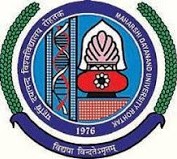
Maharshi Dayanand University - MDU
Rohtak, Haryana -

Pacific University - PU
Udaipur-Rajasthan, Rajasthan -
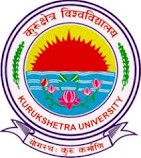
Kurukshetra University - KU
Kurukshetra, Haryana -
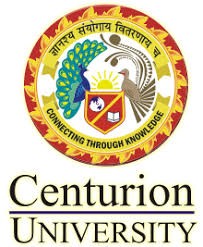
Centurion University of Technology and Management - CUTM
Visakhapatnam, Andhra Pradesh -

KREA University - KU
Sricity, Andhra Pradesh -
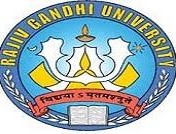
Rajiv Gandhi University - RGU
Papum Pare, Arunachal Pradesh -

SRM University - SU
Guntur, Andhra Pradesh -
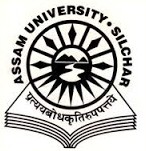
Assam University - AU
Silchar, Assam -

Tezpur University - TU
Sonitpur, Assam -

Central University of South Bihar - CUSB
Fatehpur-Bihar, Bihar -

Mahatma Gandhi Central University - MGCU
Motihari, Bihar -

Nalanda University - NU
Rajgir, Bihar -

Jamia Millia Islamia - JMI
New Delhi, Delhi -

VIT-AP University - VU
Guntur, Andhra Pradesh -

Apex Professional University - APU
East Siang, Arunachal Pradesh -

Arunachal University of Studies - AUS
Namsai, Arunachal Pradesh -

Arunodaya University - AU
Itanagar, Arunachal Pradesh -

Himalayan University - HU
Itanagar, Arunachal Pradesh -

North East Frontier Technical University - NEFTU
West Siang, Arunachal Pradesh -

Indira Gandhi Technological and Medical Science University - IGTMSU
Ziro, Arunachal Pradesh -

Venkateshwara Open University - VOU
Naharlagun, Arunachal Pradesh -

Assam Don Bosco University - ADBU
Azara, Assam -

Assam Down Town University - ADTU
Guwahati, Assam -
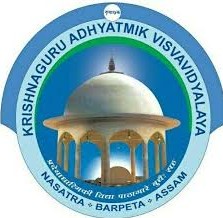
Krishnaguru Adhyatmik Visvavidyalaya - KAV
Barpeta, Assam -

Mahapurusha Srimanta Sankaradeva Viswavidyalaya - MSSV
Nagaon, Assam -

The Assam Kaziranga University - AKU
Jorhat, Assam -

The Assam Royal Global University - ARGU
Guwahati, Assam -

Amity University - AU
Patna, Bihar -

Dr C. V. Raman University - CVRU
Vaishali, Bihar -

Gopal Narayan Singh University - GNSU
Rohtas, Bihar -

K K University - KKU
Nalanda, Bihar -

Sandip University - SU
Madhubani, Bihar -
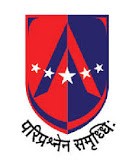
Ahmedabad University - AU
Ahmedabad, Gujarat -

Anant National University - ANU
Ahmedabad, Gujarat -

Atmiya University - AU
Rajkot, Gujarat -

AURO University of Hospitality and Management - AUHM
Surat, Gujarat -

C. U. Shah University - CUSU
Wadhwan, Gujarat -

Calorx Teacher's University
Ahmedabad, Gujarat -

Charotar University of Science & Technology - CUST
Anand, Gujarat -

Jawaharlal Nehru University - JNU
Delhi, Delhi -

Dhirubhai Ambani Institute of Information and Communication Technology - DAIICT
Gandhinagar, Gujarat -

G.L.S. University - GU
Ahmedabad, Gujarat -
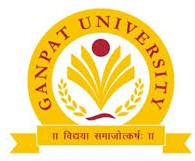
Ganpat University - GU
Mehsana, Gujarat -
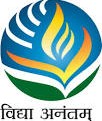
Gokul Global University - GGU
Sidhpur, Gujarat -

GSFC University - GU
Vadodara, Gujarat -

Indian Institute of Public Health - IIPH
Ahmedabad, Gujarat
PH.D. Thesis Writing Assistance/Paper Publication Services
- UGC Care List Journal Publication Services
- Scopus Journal Publication
- Proposal / Synopsis Writing
- Topic Suggestion
- Ph.D. Thesis Writing
- Dissertation Writing
- Research Paper Writing
- Paper Publication with ISSN Number
- Conference / Seminars
- PowerPoint Presentation
- Data Collection / Analysis
- Plagiarism Correction
- Plagiarism Report TURNITIN / URKUND
- Book Publication
- Ph.D. Thesis Concert into Book
- All Research Work
- Complete Research Work
- Indexed Journals - Scopus
- UGC Care Journal
- Research Review Journal
- Home |
- About Us |
- Privacy Policy |
- Terms & Conditions |
- Contact Us |
- PH.D. |
- Admission 2024 |
- Our Team |
- Visitor: 373328804